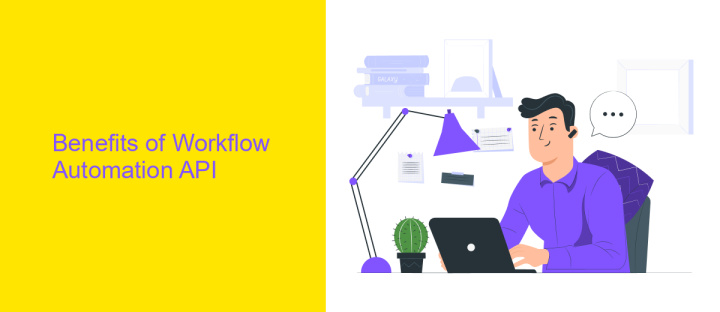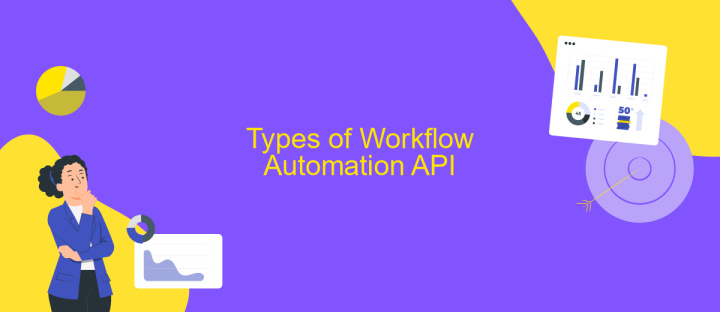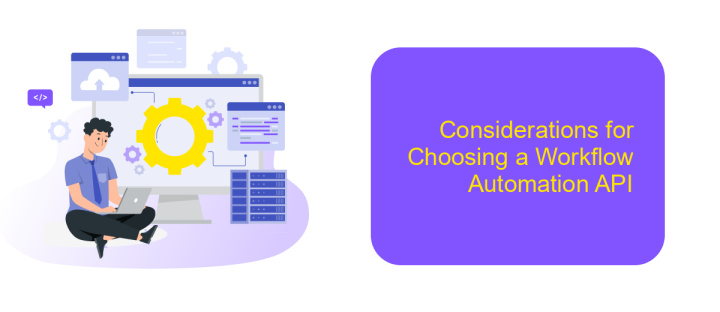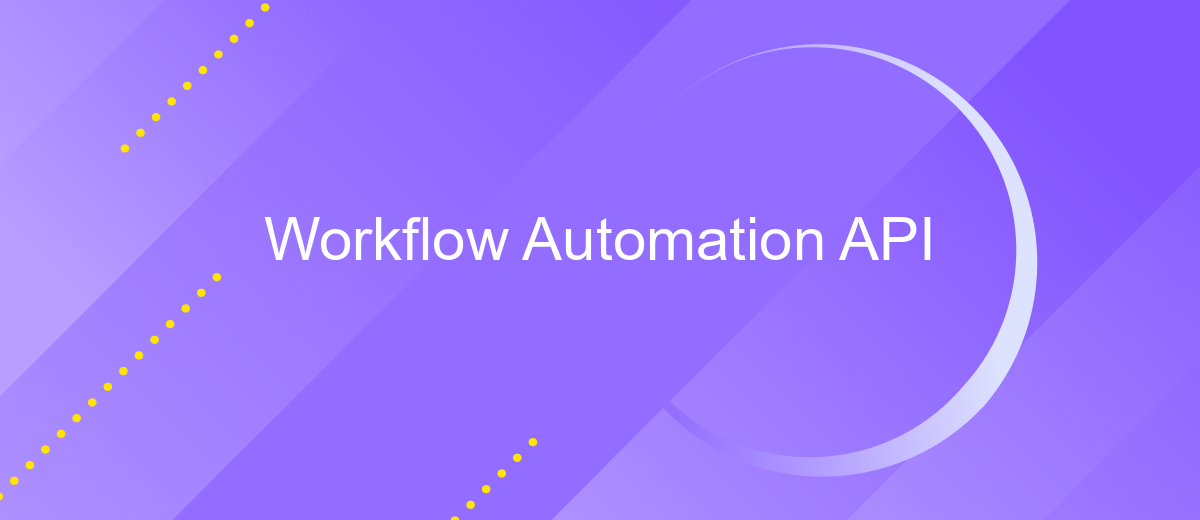Workflow Automation API
In today's fast-paced business environment, efficiency is key. Workflow Automation APIs offer a seamless way to streamline repetitive tasks, enhance productivity, and reduce human error. By integrating these APIs into your systems, you can automate complex workflows, allowing your team to focus on strategic initiatives. Discover how Workflow Automation APIs can transform your business operations and drive success.
Introduction
Workflow Automation API is revolutionizing the way businesses handle their daily operations by automating repetitive tasks and streamlining processes. This technology allows organizations to integrate various applications and services, ensuring seamless data flow and enhanced productivity.
- Automates repetitive tasks
- Streamlines business processes
- Facilitates seamless integration of applications
- Enhances productivity and efficiency
One notable service in this domain is ApiX-Drive, which simplifies the integration of different applications without the need for coding skills. By leveraging such APIs, businesses can save time, reduce errors, and focus on more strategic activities. As a result, Workflow Automation API is becoming an essential tool for modern enterprises aiming to stay competitive in a fast-paced digital world.
Benefits of Workflow Automation API

Workflow Automation APIs bring numerous benefits to businesses by streamlining processes and boosting productivity. By automating repetitive tasks, organizations can save valuable time and resources, allowing employees to focus on more strategic activities. This not only enhances efficiency but also reduces the likelihood of human error, ensuring more accurate and reliable outcomes. Moreover, the ability to integrate various applications and services through APIs facilitates seamless data flow and improves overall operational coherence.
One of the key advantages of using a Workflow Automation API is the ease of integration with existing systems. Services like ApiX-Drive enable businesses to set up integrations effortlessly, connecting different software applications without the need for complex coding. This simplifies the automation process and makes it accessible even to non-technical users. Additionally, the scalability of these APIs ensures that as businesses grow, their automation capabilities can expand accordingly, supporting increased workloads and more sophisticated workflows.
Types of Workflow Automation API

Workflow Automation APIs are essential tools for optimizing and streamlining business processes. They enable seamless integration between different software applications, ensuring that tasks are executed efficiently and without manual intervention.
- Task Automation APIs: These APIs automate repetitive tasks such as data entry, email notifications, and report generation. They help save time and reduce human error.
- Process Automation APIs: These are used to automate complex business processes that involve multiple steps and decision points. They ensure that workflows are executed in a predefined sequence.
- Integration APIs: These APIs facilitate the connection between different software systems. For example, ApiX-Drive offers a robust integration platform that allows businesses to connect various applications without coding knowledge.
- Monitoring and Reporting APIs: These APIs provide insights into the performance of automated workflows. They help in tracking key metrics and generating reports for analysis.
By leveraging these types of Workflow Automation APIs, businesses can enhance their operational efficiency, reduce costs, and improve overall productivity. Tools like ApiX-Drive make it easier to set up and manage these integrations, ensuring that your workflows are always optimized and up-to-date.
Considerations for Choosing a Workflow Automation API

When selecting a Workflow Automation API, it's essential to evaluate various factors to ensure it meets your business needs. The right API can streamline processes, improve efficiency, and enhance overall productivity.
First, consider the ease of integration. An API that supports seamless integration with your existing systems and tools will save time and reduce the complexity of implementation. Services like ApiX-Drive can facilitate this by offering pre-built connectors and user-friendly interfaces.
- Scalability: Ensure the API can grow with your business and handle increased workloads.
- Flexibility: Look for customizable options to tailor the API to your specific workflows.
- Documentation: Comprehensive and clear documentation is crucial for smooth implementation and troubleshooting.
- Support: Reliable customer support and community resources can be invaluable for resolving issues quickly.
Lastly, evaluate the cost structure. Some APIs may have hidden fees or tiered pricing that could impact your budget. By carefully considering these factors, you can choose a Workflow Automation API that aligns with your operational goals and enhances your business processes effectively.
Best Practices for Using Workflow Automation API
When using a Workflow Automation API, it's crucial to ensure that your workflows are well-documented and organized. Start by mapping out your entire process flow before implementing it in the API. This will help you identify potential bottlenecks and ensure that each step is necessary and efficient. Additionally, always use clear and consistent naming conventions for your API endpoints and variables to maintain readability and ease of maintenance.
Integrate your Workflow Automation API with reliable third-party services to enhance functionality and streamline operations. For instance, ApiX-Drive can be a valuable tool for setting up integrations without the need for extensive coding. It allows you to connect various applications and automate data transfer seamlessly, saving time and reducing the risk of errors. Regularly monitor and test your workflows to ensure they are functioning correctly and make adjustments as needed to adapt to any changes in your business processes.
FAQ
What is Workflow Automation API?
How can I start using a Workflow Automation API?
What are the benefits of using a Workflow Automation API?
Can I integrate multiple applications using a Workflow Automation API?
What is ApiX-Drive and how does it relate to Workflow Automation API?
Time is the most valuable resource for business today. Almost half of it is wasted on routine tasks. Your employees are constantly forced to perform monotonous tasks that are difficult to classify as important and specialized. You can leave everything as it is by hiring additional employees, or you can automate most of the business processes using the ApiX-Drive online connector to get rid of unnecessary time and money expenses once and for all. The choice is yours!

